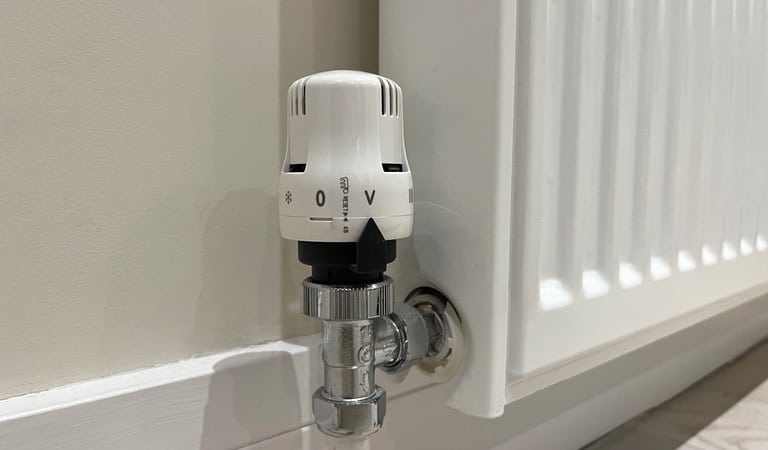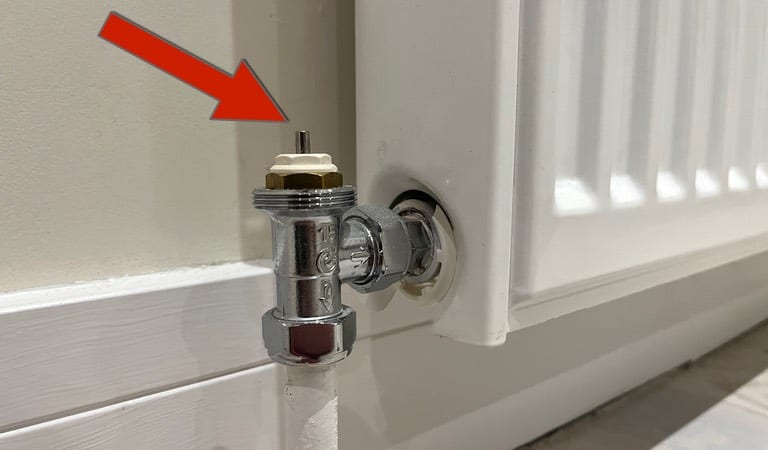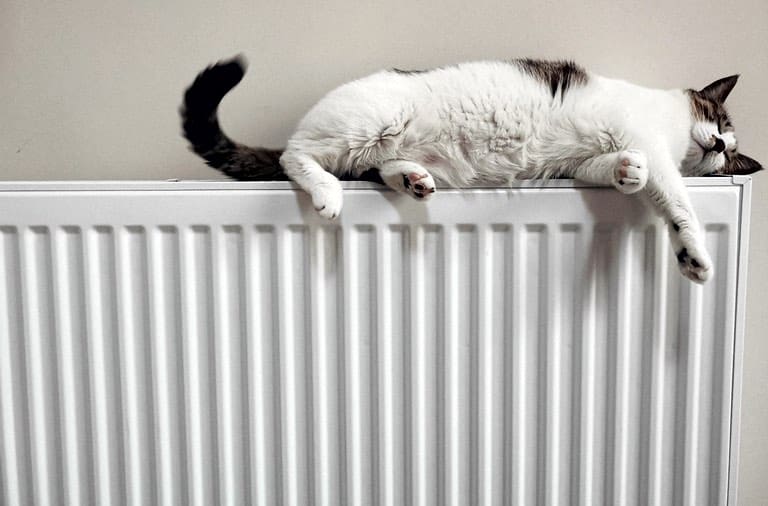Bleeding a radiator is the term used for releasing any trapped air which prevents the water from circulating and heating up. If your boiler is working but the radiators feel cold or only warm at the bottom, then your radiators will need bleeding. But who is responsible for bleeding the radiators? The tenant or the landlord?
Tenants are responsible for maintaining the radiators in their rental property, and should bleed them when required. If you are not familiar with how to bleed a radiator, don’t worry! Continue reading for an easy guide that will walk you through the process which only takes a few minutes.
That being said, it’s worth mentioning that landlords are responsible for ensuring that the heating system within the property is working correctly, and they are obliged to fix them when they are broken as a matter of urgency.
If the heating system isn’t working properly after the radiators have been bled, you should inform your landlord or letting agent as soon as possible.
Landlords are required to provide an annual Gas Safety Certificate for their rental properties. The requirement for the safety check is to ensure that any gas appliances in the property including boilers, cookers and fires are working safely and efficiently.
But these checks do not include the radiators, so it’s possible for a home to pass a gas safety check when the radiators are not working properly.
Contents
How To Bleed A Radiator: 6 Step Guide
If your radiators are not heating up when your central heating system is turned on, or if only part of the radiator is heating up, then you will need to bleed them.
Tools Needed For Bleeding A Radiator
- A radiator key which you can purchase from a local DIY store or have this one delivered from Amazon.
- A cloth or small container to catch any water that escapes.
Note: Don’t open the valve more than necessary as hot water will come rushing out before you can close it. At the very least, you’ll make a wet mess. At worst, you could scald yourself. You can prevent this by bleeding the radiators when the heating system is turned off.
6 Steps To Bleed A Radiator
1. Turn your central heating system off. You shouldn’t bleed a radiator when the heating is on, as it may be too hot to touch and there is also a risk that hot water will spray out of the radiator and cause harm.
2. Insert the key into the square groove in the centre of the valve at the top of the radiator, and turn it slowly anticlockwise. You should hear a hissing sound which is the trapped air escaping. Use the cloth or small container to catch any water that escapes.
3. Retighten the bleed valve once the hissing stops and you only see water escaping. Do this quickly to stop too much water from escaping.
4. Turn your central heating system back on and double check to ensure the valve is not leaking.
5. Check the water pressure for your central heating system by looking at the gauge on your boiler, as bleeding your radiators can cause the pressure to drop. If the pressure is too low, you will need to top it up by using the lever or tap on your boiler, known as the filling loop.
6. Check your radiator is heating up properly. If the heat is evenly spread through the whole radiator, you’ve successfully bled the radiator and fixed the problem.
It is best to bleed your radiators at the beginning of autumn, and before the cold weather sets in, to ensure your boiler and heating system are running efficiently without any trapped air.
What Happens If You Don’t Bleed A Radiator?
If you don’t bleed a radiator that is not working, you will continue to waste energy consumed by your boiler to heat your home. The boiler will be forced to work extra hard which will increase your heating bills. Radiators should be bled yearly to maintain their efficiency and reduce energy bills.
In addition to your heating system taking longer to reach the desired temperature, there is a risk that the air pressure could build and cause a leak, resulting in further damage.
Do You Have To Bleed All The Radiators?
You do not have to bleed all the radiators if only one radiator isn’t working properly. In this case, just bleed the radiator that is cold. However, radiators should be bled every year to maintain energy efficiency, so it might be worth your while checking the remaining radiators at the same time.
If the radiator fails to work after bleeding, there could be a problem with the pin under the Thermostatic Radiator Valve (TRV). If the pin is in the down position, it will be preventing the water from entering the radiator to heat up.
You can easily check this by removing the cap, or head of the TRV, and using an adjustable spanner or pair of pliers to gently grip the pin and move it up and down. This will free the pin and allow the hot water to enter the radiator. Replace the TRV cap and bleed the radiator again to ensure air hasn’t entered the system.


If the radiator is still not heating up properly, you should notify your landlord immediately. There are a number of other ways to fix a faulty radiator, but it is best to have a plumber or heating engineer do the work.
Is The Landlord Responsible For The Central Heating System?
Landlords are responsible for providing a central heating system and carrying out any repairs that are needed to the boiler, pipes and radiators during a tenancy. Tenants should report any faults with the system, such as a faulty radiator, as an emergency to the landlord or letting agent.
It’s also worth mentioning that there are legally required temperatures associated with heating a rental property. When the weather drops below -1°c, bedrooms should have the capabilities to be heated to a minimum of 18°c, and living rooms should be able to be heated to at least 21°c.
As most landlords are not plumbers or qualified heating engineers, the good news is that there are a growing number of companies that assist landlords by providing a call-out service when their central heating system stops working, for a small monthly fee. These services are worth considering as they will help to avoid any hefty repair bills when they are least expected.
Similarly, tenants will be responsible for the repair bills if they have caused malicious damage to the boiler, or any part of the heating system.

